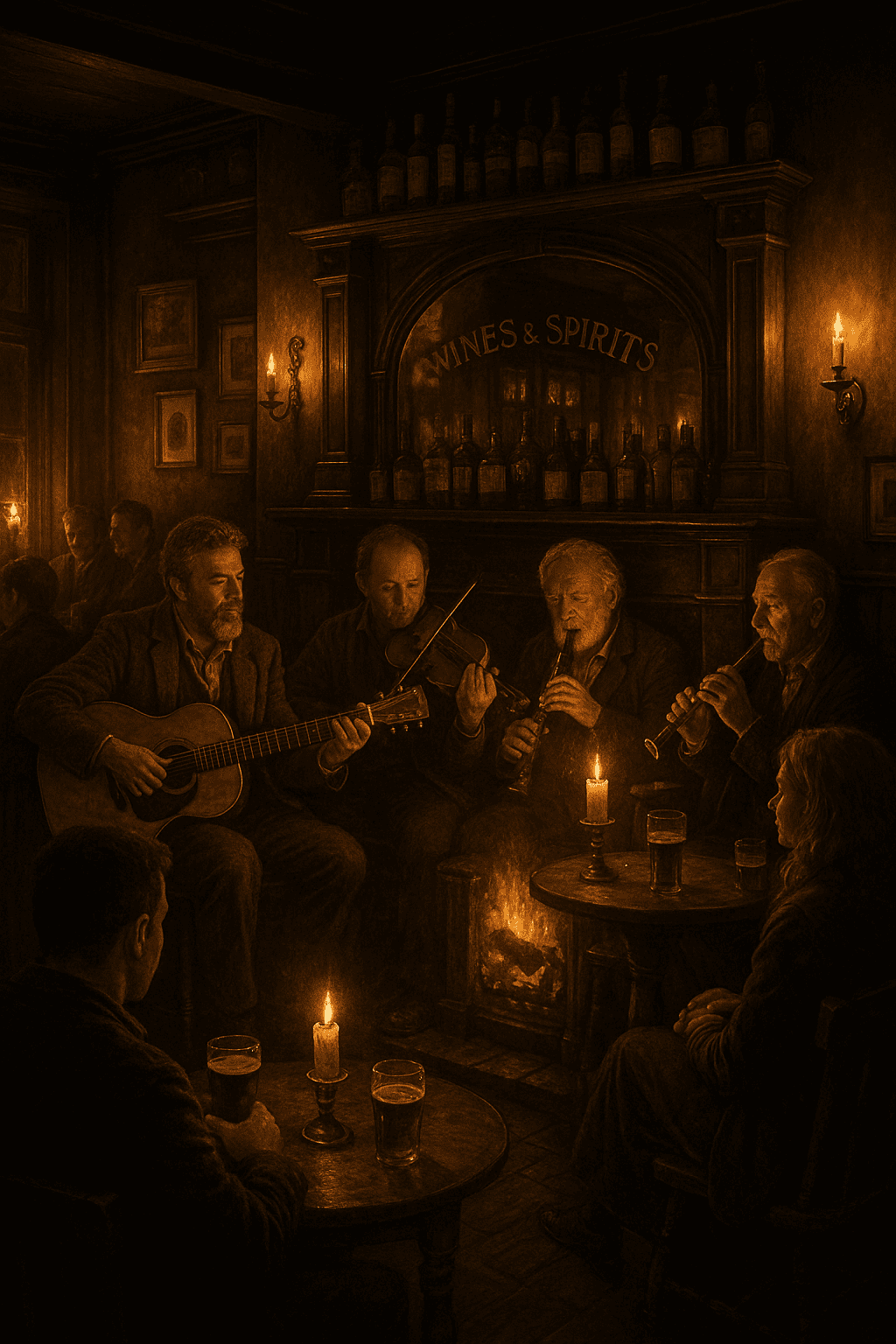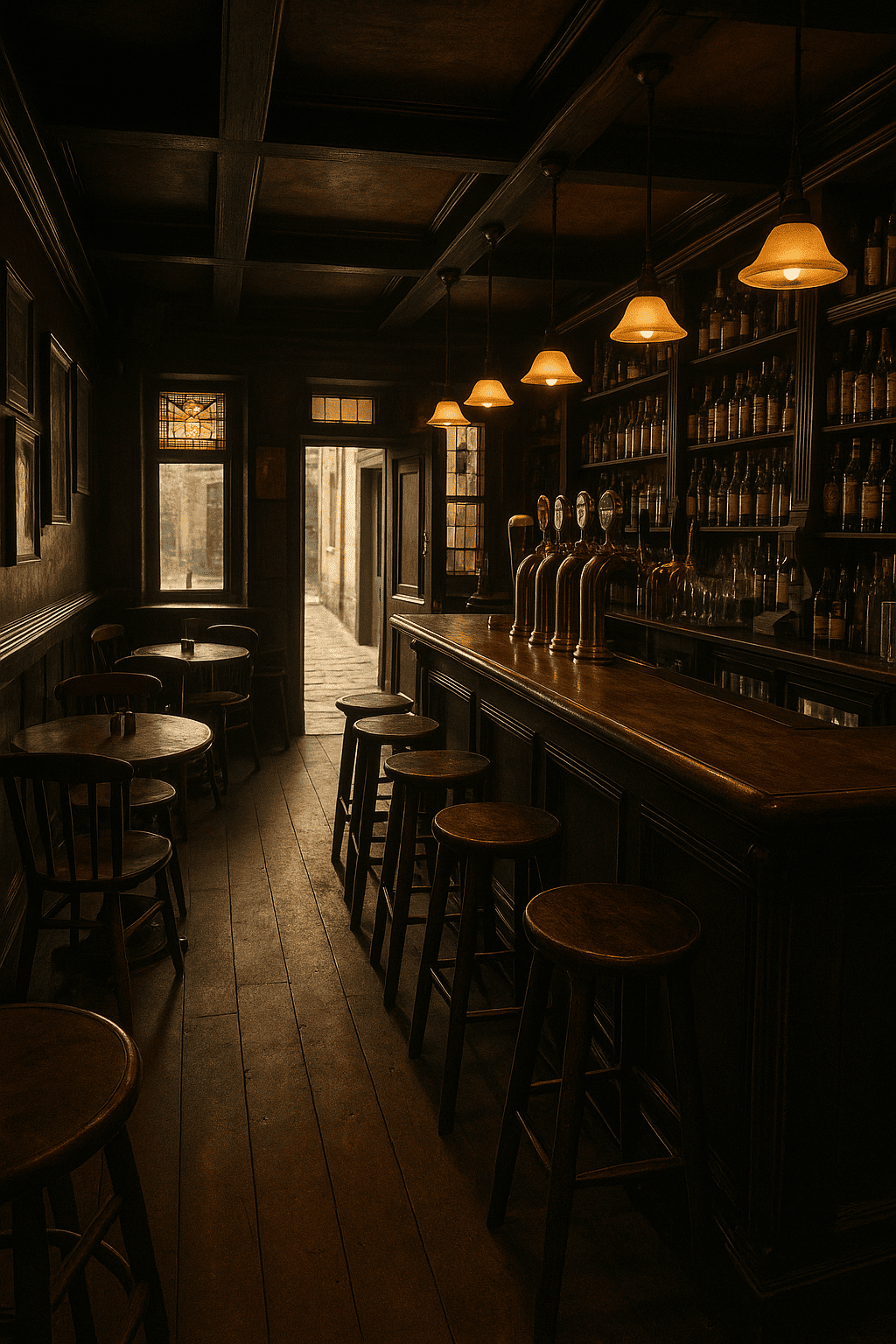
The origins of the Irish pub stretch deep into the soil of medieval Ireland. Long before tourism and Guinness advertisements, there were simple alehouses scattered across the countryside. These were humble rooms attached to homes or inns, where locals gathered to share mead, ale, and news from neighboring villages. They were not licensed by the state but by reputation — the host’s hospitality was the only law that mattered. The fire burned, the beer flowed, and the stories grew with each retelling.
Long before Guinness became a global symbol, the Irish were masters of hospitality. Medieval alehouses dotted the countryside, offering shelter, warmth, and cheer to weary travelers. These were not businesses in the modern sense but community spaces — run on trust and good spirit. A host was known by their generosity, a bench by the stories shared upon it, and an evening by the songs that lingered after midnight. When English colonists tried to impose regulations and taxes on such establishments, the Irish spirit simply went underground. Thus were born the shebeens — secret, unlicensed pubs hidden in cottages or barns, where rebels and poets gathered to drink, sing, and debate. These hidden taverns became sanctuaries of wit and resistance, where words were weapons sharper than any blade. The shebeen culture embodied the Irish refusal to let their joy be governed by authority. Even in the face of poverty and oppression, there was always time for laughter and storytelling.
By the 18th and 19th centuries, the Irish pub had evolved into a symbol of identity and endurance. The wooden counters, brass taps, and stained-glass windows we now associate with traditional pubs began to appear. These were places where political movements were whispered into existence, where workers sought solace after long days, and where poets — from Yeats to Kavanagh — found their voices over a pint. The pub became Ireland’s unofficial parliament, its social hearth, and its confessional booth. Here, debates about freedom, faith, and football flowed side by side. You could walk into a pub in Cork or Donegal and leave hours later knowing the history of an entire family, the state of the weather, and the fate of last year’s harvest.
The Irish diaspora carried this institution across oceans. From New York to Sydney, Irish emigrants built pubs that felt like small embassies of home. They were more than bars — they were cultural lifelines, places to hear familiar accents and fiddle tunes in strange lands. The Irish pub abroad became a symbol of resilience and nostalgia, an antidote to loneliness. Its very design — low light, warm wood, a sense of closeness — replicated that feeling of being gathered around the fire back home. Today, there are more Irish pubs outside Ireland than within it, a testament to the power of belonging that travels with a pint.

But the story of the Irish pub doesn’t end in the past. It continues to evolve in the digital age. During the pandemic, when doors closed and stools stood empty, the spirit of the pub found new life online. Musicians streamed live sessions from their living rooms, bartenders hosted virtual Guinness tastings, and friends met in “Zoom pubs” to share a laugh across continents. What might have seemed like a loss of intimacy became a reinvention of connection. The Irish concept of craic — that untranslatable blend of fun, banter, and joy — survived through Wi-Fi signals and webcams. The pub adapted without losing its soul.
Now, as pubs reopen and the world resumes its restless rhythm, many have embraced a hybrid identity. Some host storytelling nights streamed to global audiences; others invite local musicians to collaborate with international artists online. The essence of the Irish pub — connection — has simply found new forms. It proves that what keeps the tradition alive is not the drink or décor, but the human need to belong and to be heard.
What truly distinguishes an Irish pub from any other is its relationship to memory. Step inside a centuries-old bar in Cork or Dingle, and you can feel the weight of stories pressed into the walls. Names carved into wood, photographs yellowed by time, coins embedded in the counter — all silent witnesses to laughter, grief, and the infinite small dramas of daily life. Even the smell — a mixture of oak, malt, and damp — carries the ghosts of generations.
And yet, despite this nostalgia, the Irish pub remains a place of renewal. New songs are written, new friendships formed, new toasts raised. Every night is both old and new. That cyclical rhythm mirrors Ireland itself — a country rooted in tradition yet endlessly reinventing its own myth. The Irish pub embodies that paradox: it is as old as the land and as fresh as tomorrow’s laughter.
It’s tempting to romanticize the pub as a symbol of escape — a place to forget life’s troubles. But in truth, the Irish pub does the opposite. It invites you to remember, to listen, to connect. It is the one room where strangers become kin, where stories find ears, and where time, for a few blessed hours, feels kind. The pint might be half-empty or half-full, but the spirit that fills the room never runs dry.
Because, in the end, it was never really about the alcohol. It’s about the craic. It’s about the warmth of belonging, the poetry in conversation, the music in ordinary voices. The Irish pub endures because it understands something timeless: that people, not pints, make the world go round.
When you leave, the door closes softly behind you, and the sound of laughter lingers in the night air — a reminder that somewhere in Ireland, or across the world, another story has just begun.
